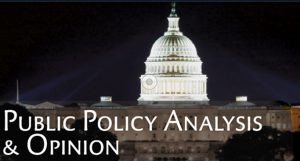Senators propose criminal sanctions
“It is critical for these bad actors to be held criminally responsible and implement common sense consumer protections so families can confidently purchase quality, affordable health care insurance that works for them through honest brokers.”
—Sen. Ron Wyden
By Kevin P. Hennosy
Once again, a committee of the United States Senate turns its attention to the business of insurance. That statement is not always what insurance professionals want to hear but, in this case, most will welcome the attention.
This time, the Chair of the Senate Finance Committee, Senator Ron Wyden (D-Ore.) sponsors legislation to establish civil and criminal penalties for deceptive and unauthorized sales activity on the Affordable Care Act (ACA) Marketplace. Senators Sherrod Brown, (D-Ohio), Tammy Duckworth, (D-Ill.), Patty Murray, (D-Wash.), Brian Schatz, (D-Hawaii), and Chris Van Hollen, (D-Md.) co-sponsor the bill.
“My bill will crackdown on fraudulent tactics that cheat hard working Americans out of getting the health care they need,” observed Wyden.
What are those tactics, which have the Senators’ ire?
In a statement announcing his legislation, Wyden explained, “Rogue brokers use misleading advertising, such as touting free government subsidies, to target low-income individuals and enroll them into insurance plans without their permission.” In addition, fraudsters “switch customers’ insurance plans without ever contacting them,” Wyden continued.
The Senator explained that these corrupted transactions “leave customers with uncovered medical expenses, loss of coverage, disruptions in care, and even tax liabilities that could be up to thousands of dollars from their own pockets.”
The Oregon Senator recognized the damage done by these “rogue” actors: “It is critical for these bad actors to be held criminally responsible and implement common sense consumer protections so working families can confidently purchase quality, affordable health insurance that works for them through honest brokers,” said Wyden.
The Senator’s use of the word “rogue” seems important. He does not allege that unauthorized enrollments, or switching, of ACA policies is the new normal for health insurance producers or companies. The activity is cruel and financially abusive. The fraudulent actors have visited harm upon at least hundreds of thousands of Americans.
On June 24, 2019, the Department of Health, and Human Services (HHS) and its Centers for Medicare & Medicaid Services (CMS) published a presentation titled “Unauthorized Enrollments: Using the Health Insurance Casework System (HICS).” The existence of this presentation suggests strongly that CMS knew there was a problem with Unauthorized Enrollments before 2019. Years before 2019.
The presentation notes that Unauthorized Enrollments “are usually completed by an agent or broker or another person unknown to the consumer who filled out the application and enrolled the consumer(s) in a plan.” The presentation suggests that a primary way for carriers to recognize an Unauthorized Enrollment is that the policy results in no claims.
Brilliant!
As early as January 17, 2022, Julie Appleby, a reporter for Kaiser Family Foundation Health News (KKF) Health News, whose coverage is often heard on National Public Radio (NPR), reported on unauthorized sales on the ACA Marketplace. In the past year, Appleby filed multiple stories documenting the twin problems of Unauthorized Enrollments and unauthorized switches to plans.
Throughout the reporting, Appleby quotes honest agents, brokers, and trade groups who decry the unauthorized transactions. Readers interested in catching up on Appleby’s reporting can find it on the KKF Health News Web site.
Trust broken
Insurance is a business based upon trust. Once trust breaks, the insurance mechanism ceases to work, and purchasers recoil from re-entry into the market. With a smaller number of participants in the insurance pool, spreading the risk of financial loss becomes difficult. The loss of trust is the easiest way for insurance markets to slide into a death spiral. Fraud must be addressed quickly.
Senator Wyden observed, “Access to affordable health coverage is necessary for good health and should never be exploited by fraudsters to collect illicit commissions at the expense of working Americans.”
Also, through the unauthorized switching racket, honest producers lose business to the rogues. Commission income that should be riding in the wallets of honest producers, rogues carry away.
Achievement
Healthcare is not a new area of interest for Senator Wyden. Going back to his years in the U.S. House and serving on the late Chairman John Dingell’s Energy and Commerce Committee, Wyden has focused on public and private healthcare financing. In the early Nineties, then-representative Wyden worked to draft legislation that prohibited certain activities, such as, stacking policies, churning, and other consumer abuses in the Medicare Supplement market.
Even a cursory discussion of Senator Wyden’s history of working on healthcare issues shows an impressive record of achievement. In 2003, Senator Wyden began work on improving the Medicare Drug Program. In 2007-2008 he worked on proposals contained in the Medicare Improvements for Patients and Providers Act of 2008.
More recently, in November 2022, Wyden released the results of an investigation into the marketing of Medicare Advantage Plans. In February 2023, he provided CMS with suggestions for regulatory reforms, which addressed the findings of his investigation into Medicare Advantage.
Concurrent with that effort, Senator Wyden began looking at the gaming of the ACA Marketplace and he did not like what he saw. On May 20, 2024, Senator Wyden posted a fiery letter to the CMS Administrator Chiquita Brooks-LaSure, which opened with the following: “I write to express my outrage with reports that agents and brokers are submitting plan changes and enrollments in the Federal marketplace without the consent of the people who rely on these plans.”
Wyden continued, “These plan changes and enrollments result in tangible harm to people including uncovered medical expenses, loss of coverage, and disruptions in care, and an unexpected tax liability that could be thousands of dollars out of their own pockets.”
The Senator assured the Administrator that he understood that they “both care deeply about the success of the ACA marketplace.” “In my view, the brokers, agencies, and lead generators participating in fraudulent enrollment schemes should be held criminally responsible.” Wyden promised that he would introduce legislation to provide CMS with that criminal authority.
In the interim, Senator Wyden urged CMS to hold brokers who submit fraudulent enrollments accountable to the full extent of its authority by “imposing civil monetary penalties and to take additional steps to protect consumers.”
CMS response
On July 19, 2024, CMS Administrator Brooks-LaSure responded to Senator Wyden’s letter with a progress report. The response begins with providing consumer assistance, then expands reviews of enrollment and plan switching transactions, and, where CMS finds fraud, the revocation of bad actors’ access to the ACA Marketplace.
The letter reported that between June 21 and July 10, 2024, “CMS issued 200 suspensions of agent or broker Marketplace Agreements for reasonable suspicion of fraud or abusive conduct related to unauthorized enrollments or unauthorized plan switching.”

Then, CMS suspended two websites—Benefitalign and Inshura—formerly approved for the Enhanced Direct Enrollment (EDE) program.
The CMS defines the EDE program as a pathway that allows “CMS to partner with the private sector to provide a more user-friendly and seamless enrollment experience for consumers by allowing them to apply for and enroll in an Exchange plan directly through an approved issuer or web-broker without the need to be redirected to HealthCare.gov or contact the Exchange Call Center.”
Maintaining EDE participation requires the private entity to remain in compliance with CMS standards for data privacy and other related elements.
Support
After Senator Wyden announced his corrective legislation, The National Association of Benefits and Insurance Professionals (NABIP) issued a statement. While not endorsing the newly proposed legislation, NABIP CEO Jessica Brooks-Woods stated: “Since this issue was initially raised, NABIP has demonstrated its commitment to collaborating with all stakeholders, including legislators and regulators, to resolve these concerns and ensure a fair, secure Marketplace that benefits everyone, particularly healthcare consumers.”
The Wyden Bill garnered some immediate support from insurance carriers, Centene Corporation (Ambetter Health), Blue Cross Blue Shield Association, Cambia Health Solutions (Regence BCBS). In addition, an impressive number of nonprofits focused on services and advocacy for people who suffer from dread disease endorsed the bill.
And where is the U.S. House on this issue? House leaders have asked Government Accountability Office (GAO) for an investigation of the unauthorized enrollments from the perspective that these enrollments amount to fraudulent awards of government benefits to the enrollees.
This issue should prove interesting.
The author
Kevin P. Hennosy is an insurance writer who specializes in the history and politics of insurance regulation. He began his insurance career in the regulatory compliance office of Nationwide and then served as public affairs manager for the National Association of Insurance Commissioners (NAIC). Since leaving the NAIC staff, he has written extensively on insurance regulation and testified before the NAIC as a consumer advocate.





